Wisconsin voters to decide control of state Legislature and citizenship voting question
Wisconsin voters will determine in the 2024 election which party has control of the Assembly and state Senate, as well as decide upon a proposed state constitutional amendment that would allow "only" U.S. citizens instead of "every" U.S. citizen to cast ballots in federal, state and local elections.
Associated Press
November 5, 2024
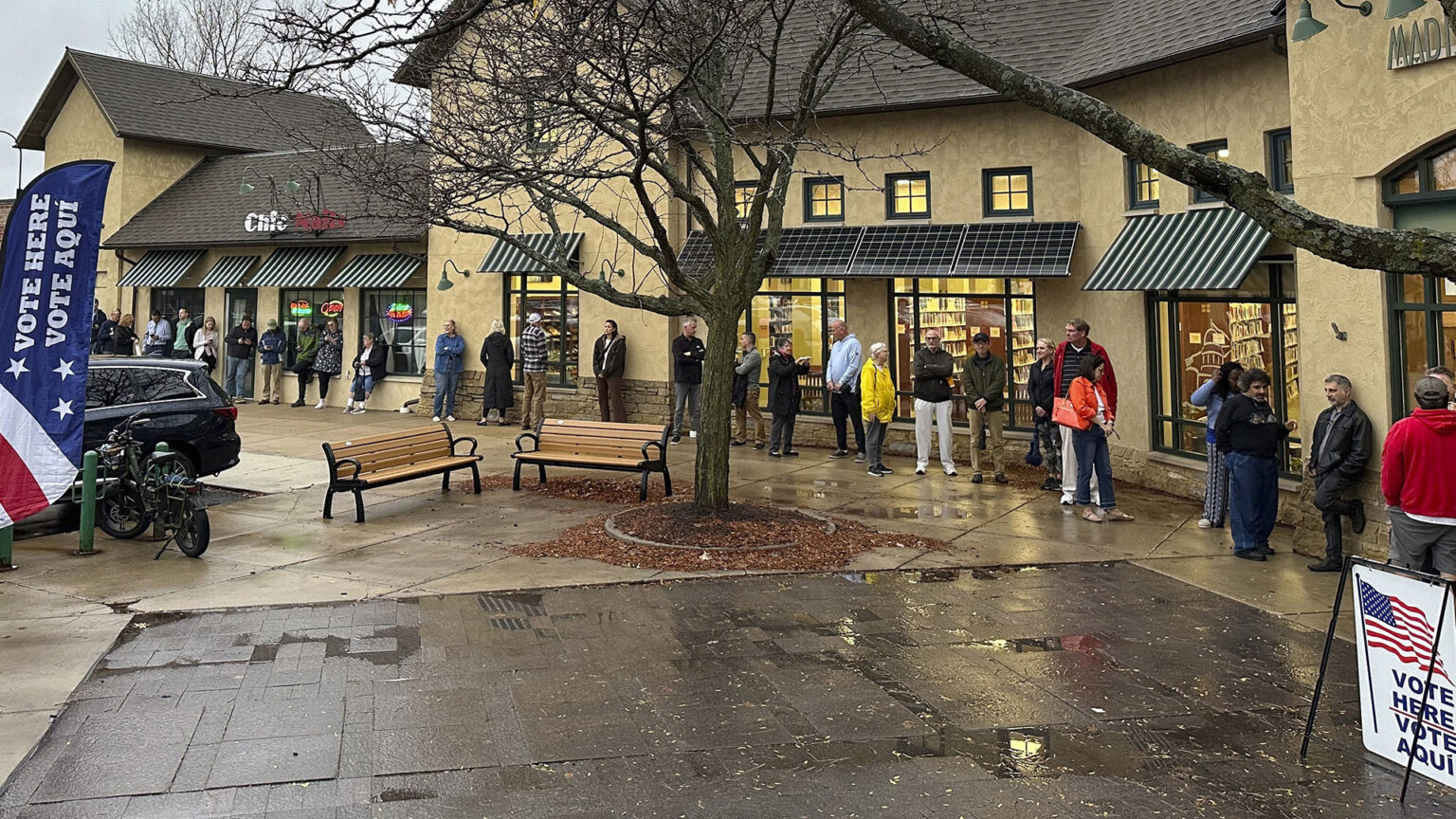
People line up in the rain waiting for polls to open to vote on Election Day, on Nov. 5, 2024, in Madison. (Credit: AP Photo / Scott Bauer)

MADISON, Wis. (AP) — Wisconsin voters will get a chance in the Nov. 5 election to shift the balance of power in the Legislature and decide whether to explicitly forbid foreign nationals from ever voting in the state.
Here’s a look at what’s at stake for the Legislature and the Republican-authored constitutional amendment designed to ensure only U.S. citizens can vote in Wisconsin.
Wisconsin Legislature
Republicans seized control of both the Assembly and the Senate in 2010. The next year they redrew district boundaries to consolidate their power and have held the majority in both houses for the last 13 years.
The political landscape shifted dramatically in 2023, though, after liberal justices won control of the state Supreme Court and invalidated the Republican district maps. That move opened the door for Democratic Gov. Tony Evers to redraw the lines, giving his party hope of making substantial gains in both chambers.
Republicans hold a 64-35 edge in the Assembly, but redistricting and retirements have left 57 seats open and 15 Democrats unopposed. Democratic leaders believe they have a shot at retaking the majority. Assembly Speaker Robin Vos has downplayed any potential Democratic gains, pointing out that the party has never come close to the majority in more than a decade.
Democrats face tougher odds in the Senate, where Republicans hold a 22-11 edge. Ten Republican seats and six Democratic seats are up in the 2024 cycle. Democrats need 12 wins to reach the 17 seats needed for a majority. That means they’ll have to hold all six of their seats and flip at least six Republican ones, a near impossible task even given the new district lines. Democratic leaders have acknowledged that Nov. 5 is about setting themselves up for a 2026 run at the majority.
Citizenship voting amendment
The Wisconsin Constitution states that every U.S. citizen can vote in Wisconsin elections. Republicans are asking voters to approve an amendment that would tweak that language to say that only U.S. citizens can vote in federal, state and local elections held in Wisconsin.
Six states have already adopted the language and it’s on the ballot in seven other states besides Wisconsin in the 2024 cycle.
Republicans across the country have been pushing such amendments, spurred on by the District of Columbia and a number of municipalities in California, Maryland and Vermont allowing noncitizens to vote in local elections.
 Passport
Passport




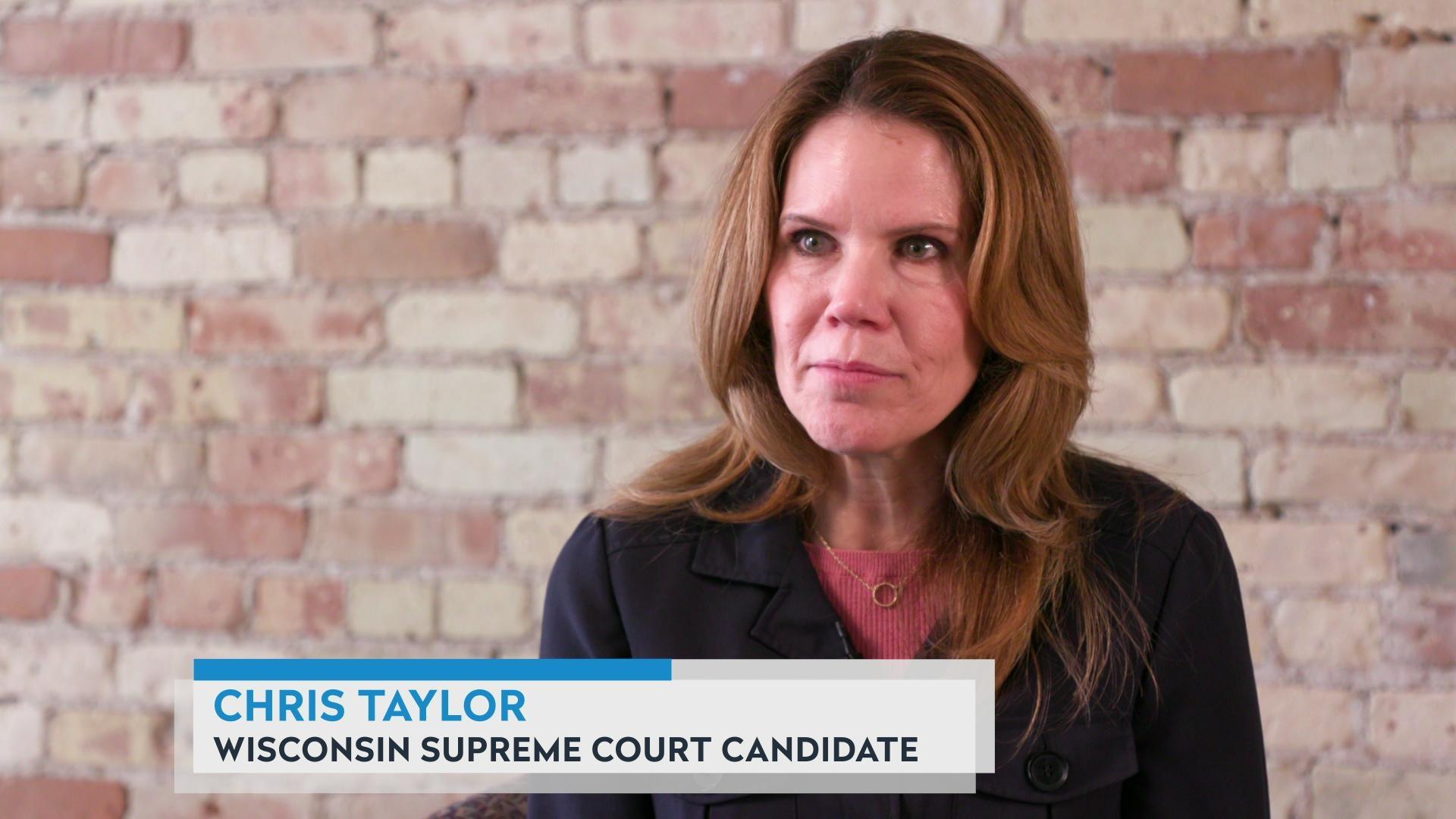
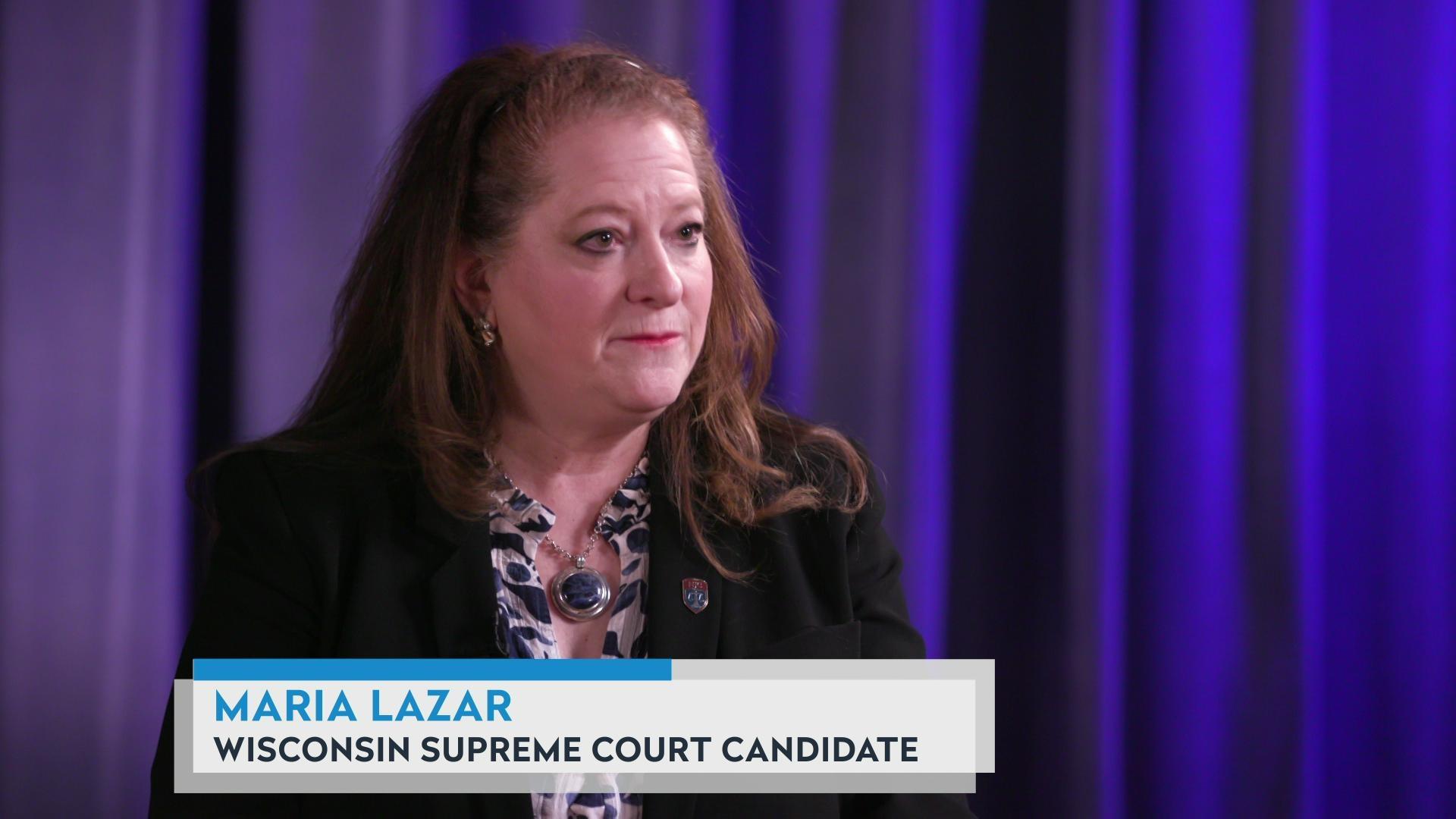
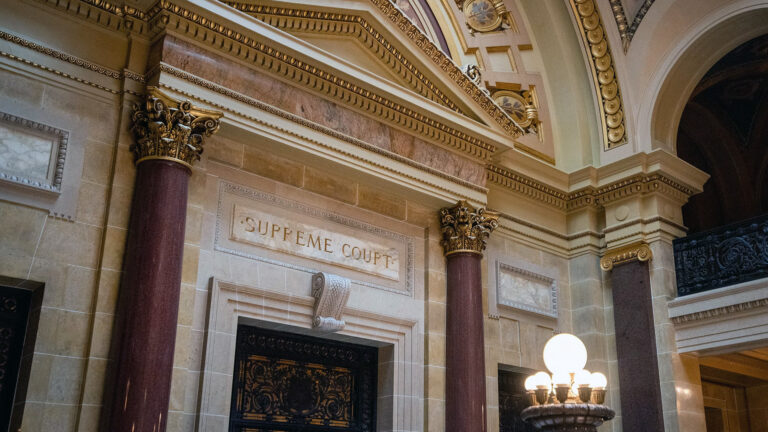
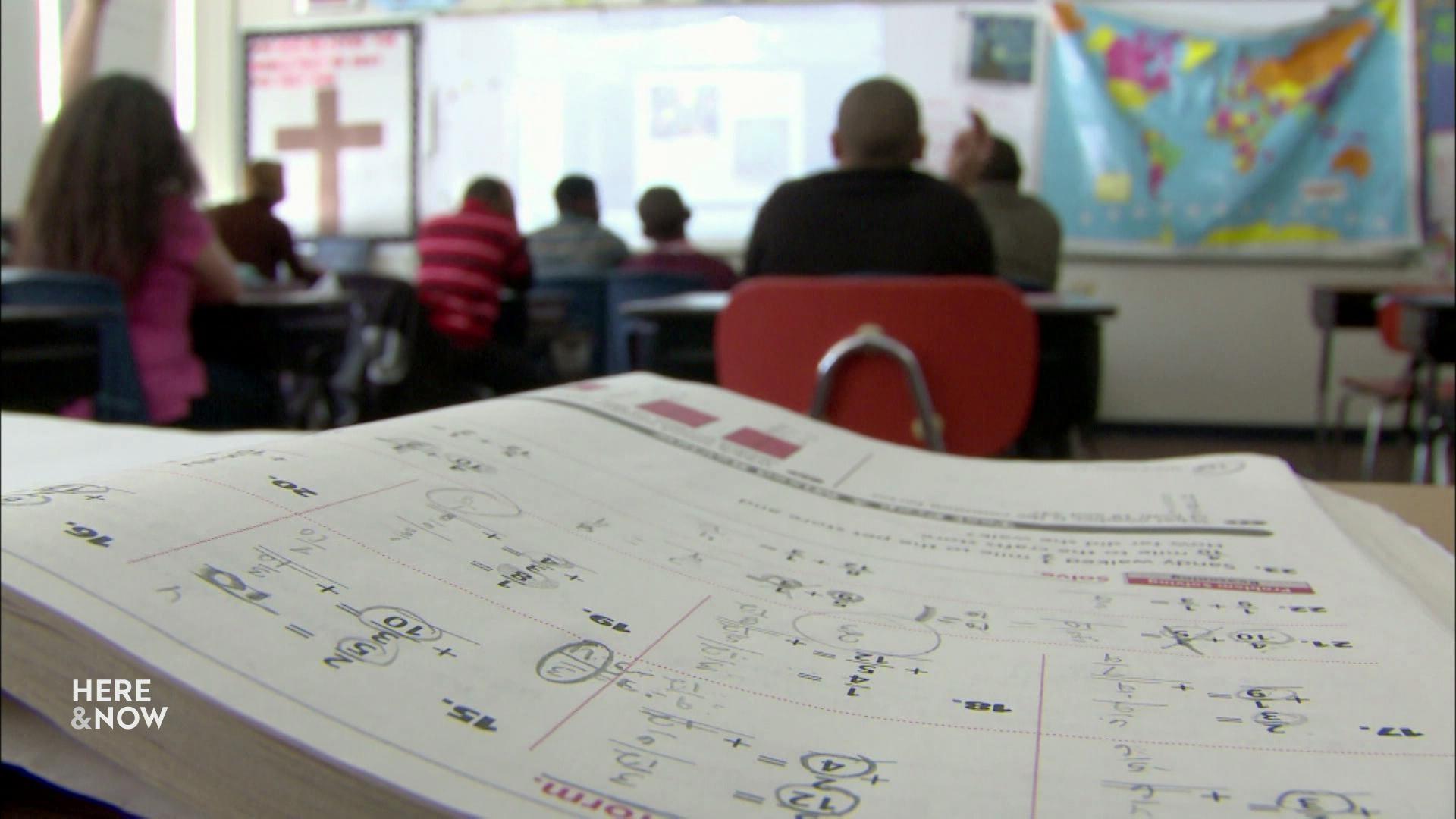
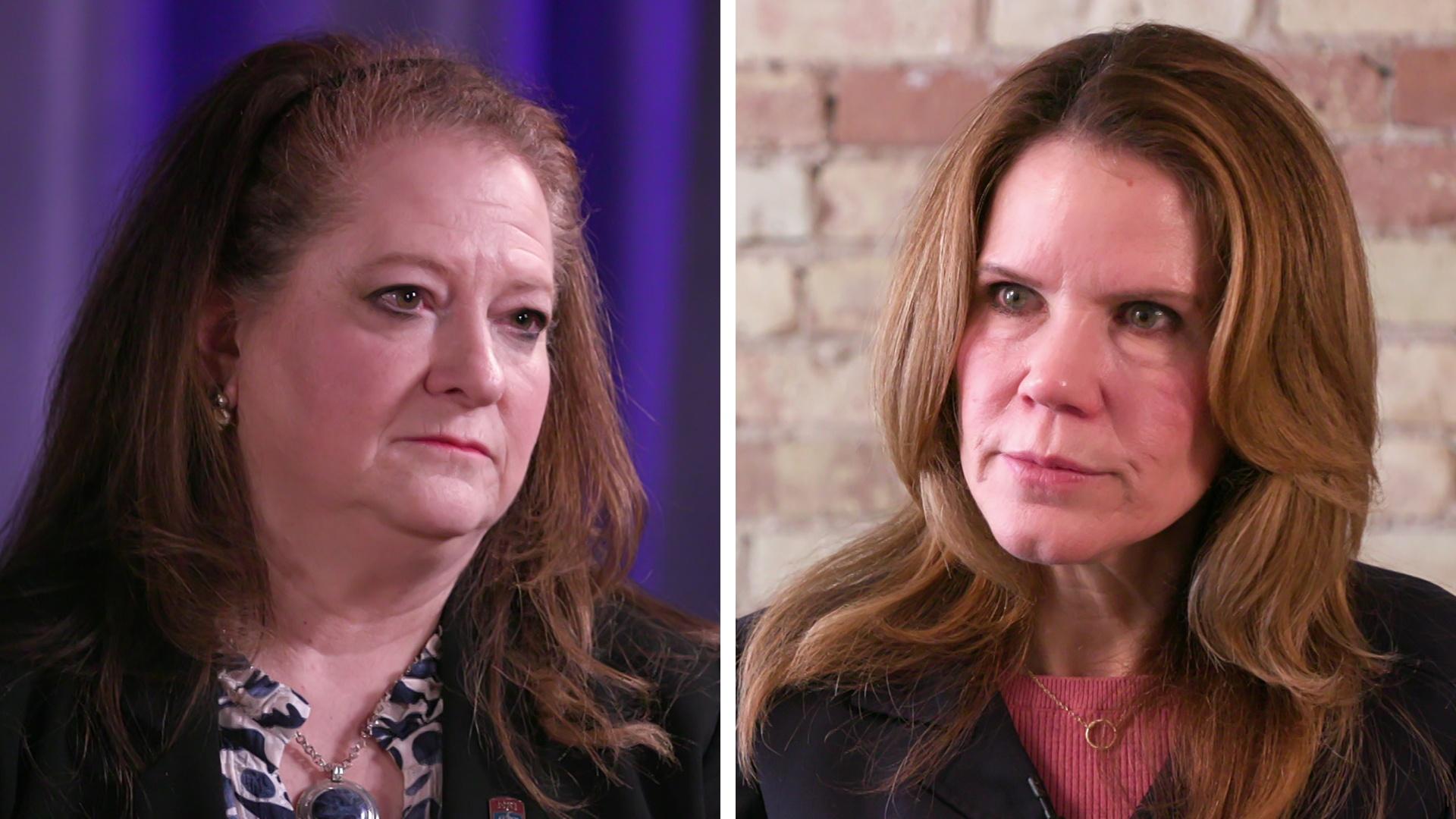


Follow Us